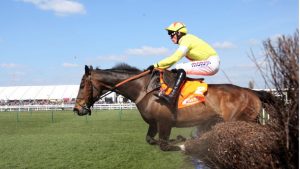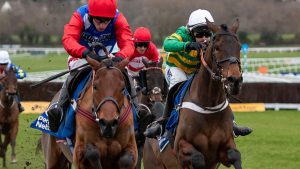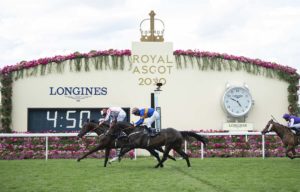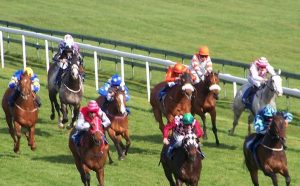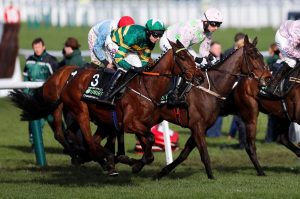Phelps vows to fight for return of crowds
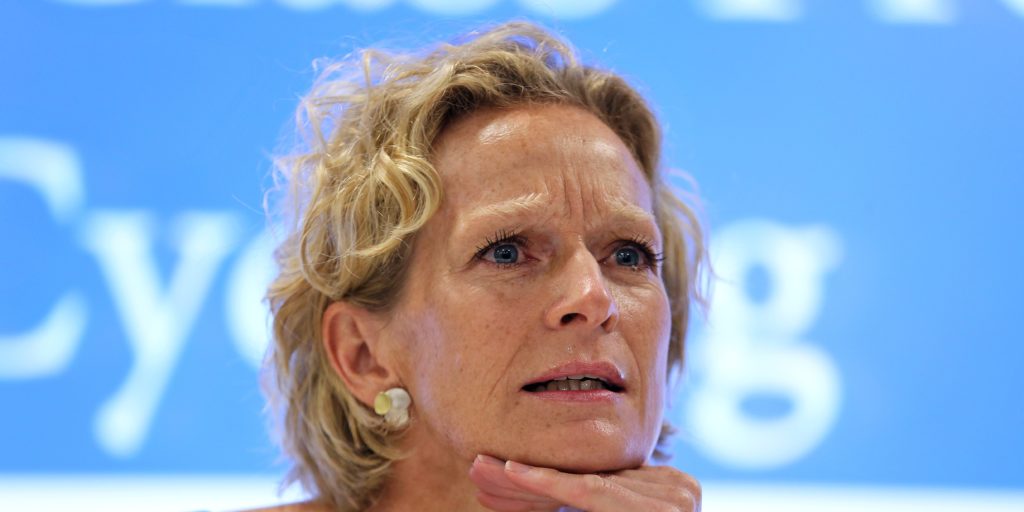
‘Without racegoers, it is perilous at all levels’
British Horseracing Authority chair Annamarie Phelps has promised to do all she can to convince Government crowds should be back on courses before next March. Phelps described the decision to abandon plans for sporting crowds to return from October 1, with Prime Minister Boris Johnson instead indicating they may be absent for another six months, as a “devastating” turn of events which has put racing in a “quite perilous state”. However, in an interview on Sky Sports Racing, she also suggested the projected hiatus until next spring may prove to be a “backstop” measure which can perhaps be brought forward in further discussions with Government. Racing has so far held two crowd pilot race days, at Doncaster and Warwick this month, before a resurgence in the national infection rate of the global coronavirus pandemic brought a return of stricter measures to try to mitigate its spread. Phelps said: “It was devastating news, I have to say – not just for those racecourses that had invested and prepared for the pilots … but to have them first of all delayed, and then the news this week, has been tragic. “It puts us in a really quite perilous state.“It is going to have a massive impact on the income to racecourses. “We hope, and are assuming, we’ll be able to carry on behind closed doors throughout all this … but unless we get racegoers back on to racecourses, the losses to the racecourses are going to be an estimate of anything between GBP 2million and GBP 4million a month. “We think we’ve probably lost GBP 250million to GBP 300million, possibly more, in the last 12 months for racecourses. “It is a perilous situation. “Without racegoers, it is perilous at all levels – and particularly for some of our top-level racing.” The BHA, she confirmed, is hoping that Levy reform will unlock much-needed and sustainable financial help in years to come and that racing may also be able to access a crisis contingency fund via Government. She added: “We are looking at trying to establish exactly what does this mean for us, financially and economically, so that we can go back to Government … to say how can they help us to get over this. “What we don’t want to do is see the demise of the industry or long-term permanent damage done to it.” A return of crowds would be a lifeline through an inevitably tough winter. Asked if she believes that could happen, Phelps said: “We’re going to work on it as hard as we can. “I really, really hope so – we’ll do everything we can. “Most importantly, we need to work with Government to find a way to get the racegoers back on the track. “What we need to do is … make sure we’re putting the case really strongly, which we are … that there is no evidence to show we’re increasing the transmission of the virus. “We’re hoping that we can begin to work with Government to try to find some solutions to this in the shorter term, and we hope that six months is just a very long backstop and that we’ll be able to bring that forward.” She is convinced racing has already demonstrated, albeit with just two fleeting opportunities, that limited crowds can return safely. Asked if the BHA believes there is a case which can be presented to continue, she said: “Of course we do.” Phelps also regards the racecourse, following the measures implemented there by the BHA, as one of the safest places amid the pandemic. “Of course it is – but people have got to get to and from the racecourses,” she said, acknowledging as well though that the public perception of crowds on racecourses is critical to a Government trying to persuade millions nationwide to “do the right thing” to avoid infection. “There is much more concern about (those) social aspects than there is about the regulated areas,” added Phelps, who is confident racecourses can host crowds safely. “From what we’ve seen, (we think) they can. “We’d like to ensure that Government are evaluating those (crowd) pilots properly, and making sure they didn’t lead to any transmission of infection. “We don’t think there’s been any transmission on racecourses so far. “It’s (Government’s) decision … they’re not basing it as far as we can see on the science, of what happens on the racecourse. “What they are more worried about, and what we all should be worried about, is what people are doing off the racecourse. “This is about trying to encourage people [general public, nationwide] to follow the rules. “They [the Government] don’t want people’s private lives to be so constrained – funerals and weddings are really limited – and then for them to see people in great big (sporting) crowds. “I think they’re trying to encourage people to do the right thing. “That may not seem fair on us, and I can see why people are really frustrated. I’m frustrated, we all are with that.”
Follow us on Twitter racing365dotcom and like our Facebook page.
Latest
-
Horse Racing
Five JP McManus-owned horses Harry Cobden will be looking forward to riding
Cobden v McManus could be a formidable partnership.
-
Horse Racing
Everything you need to know about the 2026 Cheltenham Festival
The Cheltenham Festival remains the most important...
-
Horse Racing
What Is a box bet in horse racing and how do you place one?
Making Sense of Box Bets:...
-
Horse Racing
Four horses who could be targeted at Royal Ascot
As the flat season begins to gather...
-
Horse Racing
Kentucky Derby 2025 – all eyes on Journalism and Baffert
America’s biggest horse race looms on the...
-
Horse Racing
Cheltenham Festival 2025 – Bookies spared bumper payout after opening day carnage
Bookmakers were spared an estimated £50 million...
-
Horse Racing
Rider’s ocular accident underscores importance of protective eyewear
Amid non-stop negotiations surrounding the need to...
-
Horse Racing
Concerns over inadequate facilities for female jockeys as racecourses miss upgrade deadlines
The Professional Jockeys Association (PJA)...
-
Ramatuelle ruled out of Breeders’ Cup Mile bid
French ace scratched from Del Mar contest following veterinary advice.
